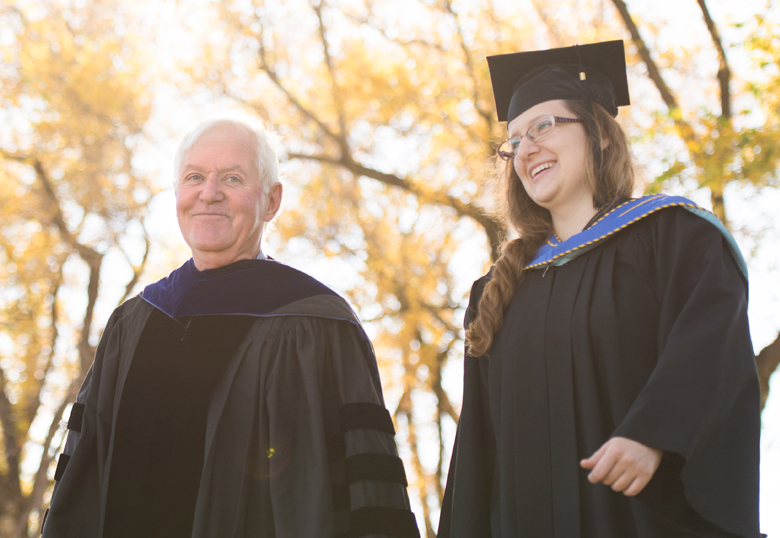For Anna Kovalchuk (BSc ’14, MSc ’15), the door has been open for her to study virtually anywhere she’d like, and yet it’s never been a question as to where she really wants to be – the University of Lethbridge.
“A lot of people asked why I was doing everything in Lethbridge, why not go elsewhere, and I thought, why would I?” she says. “I have a great basis here; I have a great working relationship with my supervisor and other students in the lab. It’s a great university.”

It is also, literally, a second home to her. The daughter of biological sciences researchers Drs. Igor and Olga Kovalchuk, Anna was a fixture in U of L labs long before she was eligible to attend the school as a student. And while she didn’t follow in her parents’ footsteps entirely, turning to neuroscience early in her undergraduate studies, Kovalchuk has stayed true to the University and plans to continue her PhD studies on campus.
“I was able to get into Dr. Bryan Kolb’s lab for an independent study when I was an undergraduate student and just continued every semester,” she says. “I think I kind of roped him into taking me on as a master’s student, and now I’m doing my PhD co-supervised by him and Dr. Robbin Gibb.”
Her studies continue to build on the work she’s done in trying to find the mechanisms underlying the side effects of chemotherapy and radiation treatments in patients suffering from cancer, and the methods to mitigate them.
“For my master’s, we were looking at the effects of chemotherapy and radiation on the murine brain; now we want to see what the effects of chemotherapy and radiation are when a tumour is present,” she explains. “For example, we want to see what sort of effects there would be on children who are getting chemotherapy treatment, and how this might impact them later on in their lives. Maybe if we can see what kind of mechanisms are going on in the brain we can understand what we can do to mitigate the side effects. In the end, that’s our goal, to see how our work in the lab can help people.”
Combatting the effects of cancer has always resonated with Kovalchuk. For years she has been among the country’s leading fundraisers for the annual Canadian Breast Cancer Foundation CIBC Run for the Cure Post Secondary Challenge. Her professional goal is to become a radiation oncologist, but only after she completes her PhD in neuroscience.
“I want to get into medical school, it’s a big goal of mine, but I want to have a PhD before that because I would like to continue with research if I become a doctor,” she says. “I’d like to mesh the patient aspect with the clinical research aspect and enjoy both worlds.”
Kovalchuk credits Kolb for helping her discover her passion for neuroscience and a thirst for discovery.
“He helped me build up my love for neuroscience until I just realized that it was the right thing for me all along,” says Kovalchuk. “He’s guided me through all of this, and really helped me through all these years. I wouldn’t change anything about my education. He’s been a great mentor, and I’m really thankful to have had the opportunity to work in his lab.”

